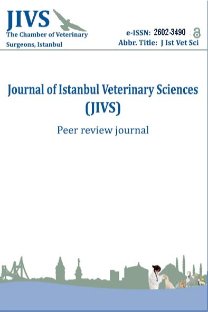Pathology of respiratory system in cattle
The most important pathology of respiratory system in domestic animals is pneumonia, which is common
in cattle because of their special anatomical properties. Lung lobules in cattle are completely separated
from each other, because of that reason collateral ventilation cannot be possible. Pneumonia occurs more
severe due to the difficulty in resolving the exudate caused by the absence of collateral ventilation.
Pneumonia is the most important cause of death in cattle, especially in weaning calves. The mortality rate
is more higher in calves that don’t take colostrum. The proportion of respiratory diseases in the cattle
population in our country varies between 22-59.7%, deaths due to the same cause in feeder cattle ranges
between 50-70%. Predisposing and constructive factors play a role in the occurrence of pneumonia. The
stress conditions that occur especially during transportation, crowded herds, weaning, castration and horn
cutting are the predisposing factors. Bacterial, viral, parasitic and mycotic agents play role in constructive
factors. Serotypes A1 and A6 of Mannheimia haemolytica are the most lethal pathogens of lobar
pneumonia (fibrinous pneumonia) in cattle. In addition to Pasteurella multocidia type B and E and
Histophilus somni, Mycoplasma bovis and Mycoplasma dispar are the other important pathogens of the
pneumonia. Although pathogens of pasteurella and mycoplasma species can cause fibrinous pneumonia,
they may also lead to enzootic pneumonia as secondary infection following viral infections that are in fact
important. Enzootic pneumonia of calves; is a highly lethal disease complex seen in the animals exposed
to indoor housing with high stocking density and it is caused by synergistic effects of two or more viruses,
mycoplasma, and bacteria. Viral agents in bovine pneumonia include bovine respiratory syncytial virus
(BRSV), bovine parainfluenza-3 viruses, infectious bovine rhinotracheitis (IBR), bovine viral diary
(BVD) and adenoviruses. Severe fibrinonecrotic pneumonia, adhesive pleuritis, and neutrophil leukocytes
appearing as “oat cells” are in the foreground in lethal lobar pneumonia caused by Mannheimia
haemolytica serotype A1, however, fibrinonecrotic pneumonia is seen less severe in Pasteuralla
multocida. Fibrinonecrotic pneumonia and vasculitis are in the foreground in Haemophilus somnus. In
addition to the occurrence of fibrin, peribronchial lymph node hyperplasia (cuffing pneumonia) and
atelectasis are important in mycoplasma pneumonia. In this presentation, it is aimed to represent
macroscopic and microscopic findings and differential diagnosis of important bacterial and viral
pneumonia in cattle .
Keywords:
respiratory pneumonia,
___
- .
- ISSN: 2602-3490
- Yayın Aralığı: Yılda 3 Sayı
- Başlangıç: 2007
- Yayıncı: İstanbul Veteriner Hekimler Odası
